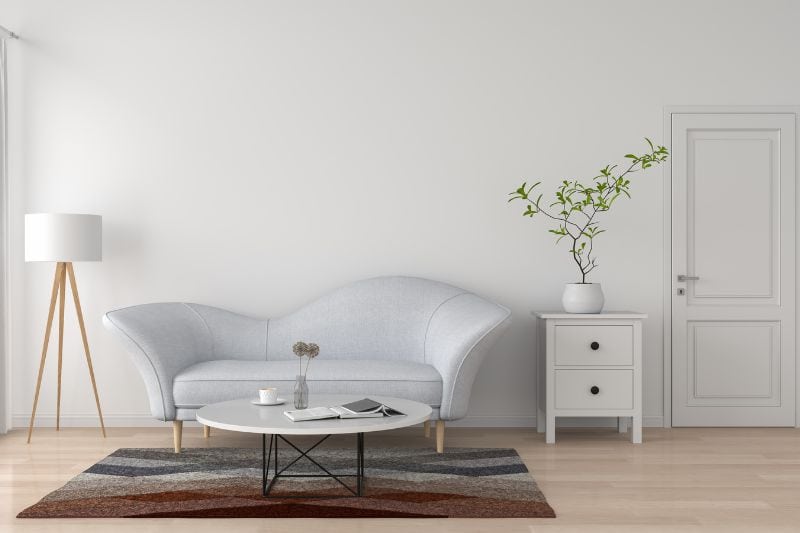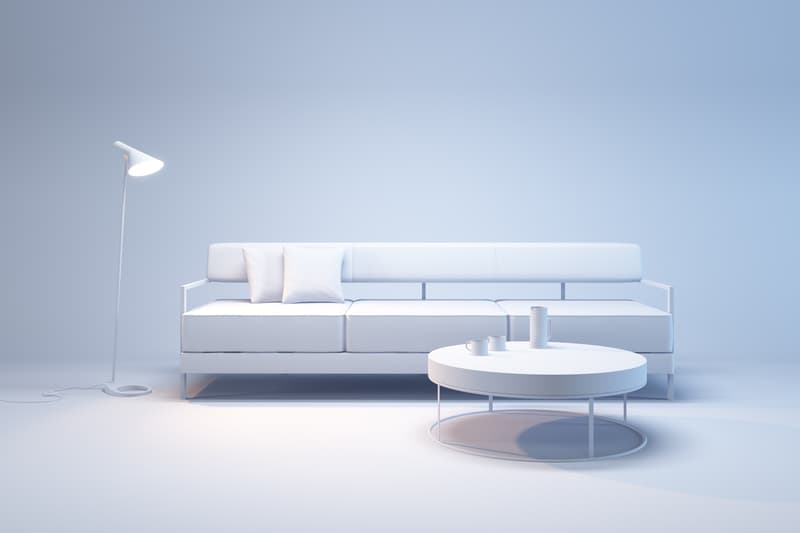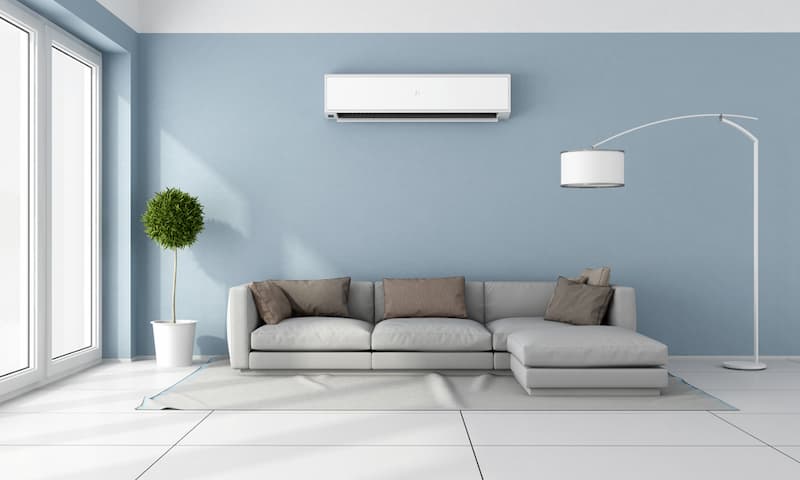Are you planning to embrace a minimalist lifestyle? Well, minimalism comes with lots of benefits — less stress, simpler cleaning times, and a greater sense of freedom, to mention but a few.
In fact, Forbes emphasizes that being a minimalist can boost your mood, lower loneliness, and give you a greater sense of well-being. In other words, there are many reasons to embrace a minimalist way of life if you still haven’t.
But before you do that, get to know what a minimalist lifestyle is and what it actually isn’t. Otherwise, you may end up believing one of the many misconceptions surrounding minimalism.
Read: 20+ Things You Should Know Before Going Off-Grid
Here are some common misconceptions about minimalism that you should know:
1. Minimalism Means Getting Rid of All Your Possessions
What comes to mind when you hear about minimalism? Well, if you’re like most people, you probably picture doing thorough decluttering to only remain with pristine white furniture and walls.
However, that’s not exactly what minimalism is all about.
Sure, minimalism involves getting rid of some items in your home, but it actually doesn’t mean you give up all your possessions. Instead, it focuses on keeping the things that add value to your life and getting rid of the excesses that only bring clutter.
It involves asking yourself, “Do I really need this?” for every item you have and being intentional about the things you choose to keep in your life.
2. Minimalism Involves Keeping a Certain Number of Items
According to statistics, an average American home has 300,000 items. That’s a lot of stuff, right?
No wonder many people associate minimalism with having a certain number of items in your possession.
However, this is another misconception about minimalism.
Minimalism has more to do with keeping what adds value to your life than just working hard to reach a specific number of items. While some minimalists may choose to have a certain number of possessions, there’s no one-size-fits-all approach to minimalism.
As long as whatever you have in your home serves a purpose and brings joy, it’s considered minimalism. The focus is not on reaching a specific number but rather on intentional living.
3. Minimalists Don’t Shop
If you love going out shopping, the widespread myth that minimalists don’t shop might discourage you from embracing minimalism.
However, the truth is that minimalists do shop. The difference is that they are intentional about their purchases and avoid buying things they don’t need or won’t add value to their lives.
Minimalists focus on quality over quantity and prioritize sustainable and ethical shopping practices. They also tend to have a more minimalist approach when buying things, opting for items with multiple uses or investing in high-quality, long-lasting products.
4. Minimalism is Just a Trend
Another myth we must debunk is that minimalist is just but a fad. That’s not true. Minimalism is here to stay. It’s not just a trend but rather a lifestyle that many people are embracing for the long run.
As already said, minimalism has a plethora of benefits, and most of the disadvantages we hear about it are all but myths.
So, as more and more people realize the benefits of minimalism and discover the truth about this lifestyle, it’s becoming increasingly popular. And while some may jump on the bandwagon temporarily, true minimalists understand its value and make it a permanent part of their lives.

5. Minimalism is Boring
Who doesn’t dread a boring life? I mean, we all want to make the most of life and have fun, right? That’s where another misconception about minimalism comes in — that it’s a dull, boring lifestyle.
But the truth is, minimalism doesn’t necessarily equate to boredom.
In fact, many people find that simplifying their lives through minimalism allows them to focus on the things that truly bring them joy and fulfillment.
Think of it as a kind of lifestyle that lets you empty your life of everything that doesn’t bring you joy and gives you an opportunity to focus on what makes you happy.
Doesn’t that pave the way for you to live life to the fullest?
So, minimalism has nothing to do with thriving through scarcity and deprivation. It is all about getting rid of the non-valuables to create ample space for life’s true gems.
6. Minimalism Involves Making Your Home Look a Certain Way
I guess we’ve all seen these pictures of minimalist homes on social media — clean, white walls, a few pieces of furniture, and some fancy decor items. They’re all over the internet, creating the widespread impression that minimalist homes have a specific look.
But that’s not the case. In the real sense, minimalism space doesn’t have an actual look. It’s all about keeping what’s important to you and a space that works for you.
Of course, what brings me joy may not necessarily be the same as what brings you joy. So, it’s all about personal preference and creating a space that aligns with your needs and lifestyle.
If you love playing guitar as your pastime, for instance, your minimalist space may include a guitar stand and some sheet music on the wall.
That will be much different from someone who finds joy in reading, and their minimalist space may involve a cozy reading corner with bookshelves.
Remember, minimalism is not about following a specific aesthetic; it’s about creating a home that supports your values and brings you peace and happiness.
7. Minimalist is Easy
I won’t lie to you — minimalism is not easy. At least, not at first. It takes a lot of time, dedication, and effort to declutter your life and make intentional choices.
To successfully embrace minimalism, you’ll need to make some adjustments to your habits, mindset, and lifestyle. And that won’t happen in a day or two. It takes time.
Imagine having to get used to your capsule wardrobe, maintaining a clutter-free space, and making intentional purchases. Those are not easy tasks.
However, once you get the hang of it and see the benefits of minimalism in your life, it becomes easier. It’s like any other lifestyle change – it takes time to adapt, but eventually, it becomes second nature.
8. Minimalism is For Singles
Who says minimalism is only suitable for single people? Minimalism can be beneficial for individuals of all ages, lifestyles, and family sizes.
In fact, many families have successfully embraced minimalism and found that it brings them closer together as they focus on quality time and experiences rather than material possessions.
Minimalism can also teach children the value of living with less and appreciating what they have, leading to a more grateful and content mindset.
Minimalism doesn’t discriminate based on age or relationship status – it’s a lifestyle that can benefit anyone who chooses to embrace it.

9. Minimalism is All About Possessions
One of the common myths is that minimalism is all about what you can see and touch. However, that’s not the case. In the real sense, minimalism is all about anything that relates to your life in any way.
It’s not just about giving up on items you don’t really need. It’s also about giving up on relationships, jobs, and activities that no longer serve you.
Minimalism is about living intentionally in all aspects of life and focusing on what truly adds value and brings joy to your life. It’s a deeper mindset shift that goes beyond material possessions.
10. Minimalism is Only For The Rich
Some people believe minimalism is for the wealthy. But that’s not it. In fact, if you’re struggling to make ends meet, minimalism can help you save money and live within your means.
By simplifying your life and only buying what you truly need and value, you can reduce unnecessary spending and focus on more meaningful experiences.
Minimalism is not about having the most expensive things; it’s about making intentional choices with your resources, regardless of how much or little you have.
11. Minimalists Are Missing Out in Life
Who said minimalists are missing out on life? In fact, minimalists often argue that they’re living a more fulfilling and intentional life than those who constantly strive for more material possessions.
By removing the distractions of excess possessions and focusing on what truly matters, minimalists can appreciate and savor every moment fully.
They also have more time and energy to pursue their passions, hobbies, and experiences that bring them joy.
So, far from missing out on life, minimalists are actually living their best lives in a more meaningful and intentional way.
Read: 10+ Unlimited Luxuries That You Can Have When You Go Off-Grid
12. Minimalism Impedes Productivity
Some may believe that minimalism is just a fancy word for laziness and that it hinders productivity.
But in reality, minimalism can actually boost productivity by eliminating distractions, promoting clear thinking, and allowing for more efficient use of time and resources.
With a simplified and clutter-free environment, people can focus better on important tasks and accomplish more without being weighed down by unnecessary possessions.






